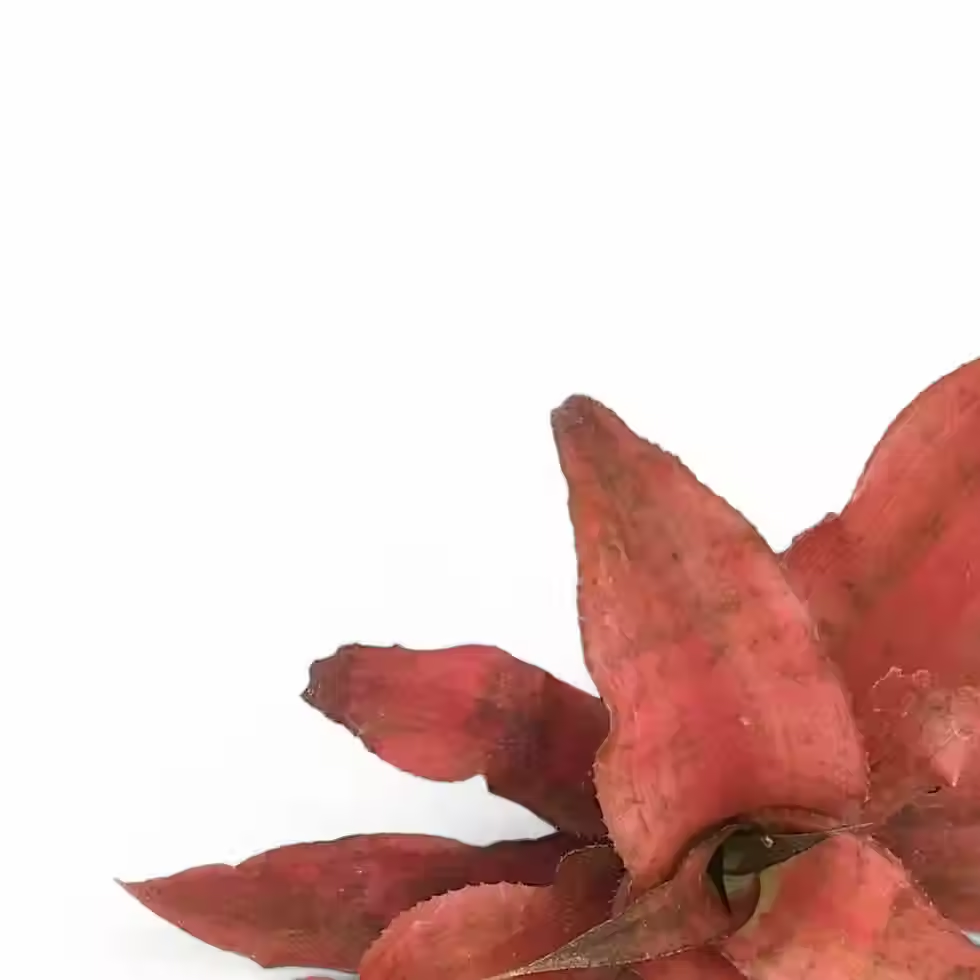Musa 'Dwarf Cavendish' – Fast-Growing Banana Plant for Bright Indoor Spaces
Musa acuminata 'Dwarf Cavendish' is a compact banana cultivar with broad, paddle-like leaves and fast upright growth. It brings tropical drama to any well-lit indoor space, starting with red-speckled juvenile leaves that mature into deep green. As a giant herbaceous plant, it forms a thick pseudostem from overlapping leaf bases. Easy-care, pet-safe, and visually impactful, this variety also has the potential to produce edible bananas under ideal conditions.
Standout Features of Musa 'Dwarf Cavendish'
- Indoor Size: Grows 1.2–2 m tall with a spread of up to 1.5 m
- Leaf Form: Young leaves emerge with red speckles, fading to uniform green as they mature
- Growth Type: Herbaceous perennial with dense, upright leaf formation
- Container Guidance: Start in a 20–25 cm pot and upgrade to 30–35 cm as roots expand
- Fruiting Potential: Can bear small, edible bananas with enough warmth, light, and maturity
Botanical Background and Indoor Behavior
- Origin: Cultivated from Musa acuminata, native to Southeast Asia
- Climate Needs: Performs best in warm, humid conditions (22–30 °C)
- Growth Habit: Upright structure with large arching leaves for a tropical indoor display
- Toxicity: No known toxicity to pets or humans — safe for living spaces
Care Tips for Musa 'Dwarf Cavendish'
- Light: Needs bright, indirect light. Tolerates morning sun; avoid harsh midday exposure
- Watering: Keep soil evenly moist. Allow top 2–3 cm to dry between waterings
- Humidity: Prefers 50 %+ humidity. Use a humidifier or tray if air is dry
- Temperature: Optimal range is 22–28 °C; avoid exposure below 15 °C
- Soil Mix: Use a rich, well-draining mix with compost, coir, and perlite
- Feeding: Fertilize every 2–4 weeks with a balanced liquid formula during active growth
- Repotting: Repot every 1–2 years or when rootbound. Choose pots with good drainage
- Propagation: Divide pups with 2–3 strong roots from the base of the main plant
- Hydroponics: Can adapt to semi-hydro setups with proper nutrient control
- Pruning: Trim yellow or torn leaves with clean scissors to encourage fresh growth
Troubleshooting Common Issues
- Yellowing Leaves: Usually caused by overwatering or poor drainage
- Brown Tips: A sign of dry air — boost humidity or mist occasionally
- Drooping: Check soil moisture and ensure roots aren’t overcrowded
- Pests: Treat spider mites or mealybugs early with insecticidal soap or neem oil
- Root Rot: Avoid soggy soil by using fast-draining substrate and unblocked pots
Display Tips and Styling
- Placement: Floor placement near large windows or patios with filtered light
- Support: Stake tall plants if needed to prevent leaning in lightweight pots
- Leaf Cleaning: Wipe large blades gently with a damp cloth to remove dust and keep foliage vibrant
Etymology and Cultivar Background
- Musa: From Arabic for “banana”
- Acuminata: Refers to the pointed tip of the fruit
- 'Dwarf Cavendish': Named after William Cavendish, 6th Duke of Devonshire, who popularized bananas in Europe. Today, it's also the world’s most widely grown commercial banana variety
Frequently Asked Questions
- Can it grow bananas indoors? Yes, if kept in stable warmth and strong light long-term
- How fast does it grow? Very fast under ideal conditions — new leaves appear regularly
- Does it tolerate low light? No. In low light, growth slows and leaves lose strength and color
Order Musa 'Dwarf Cavendish' – Lush Greenery with a Tropical Edge
Looking for a fast-growing plant with bold leaves and tropical flair? Musa 'Dwarf Cavendish' is your go-to. With the right care, it delivers lush foliage — and maybe even sweet fruit. Order now and bring tropical energy to your indoor space.
Musa acuminata 'Dwarf Cavendish'
Musa 'Dwarf Cavendish' comes in following sizes:
Baby Plant– is approximately 15 cm tall and comes in a ⌀ 6 cm pot.
S – is approximately 35 cm tall and comes in a ⌀ 12 cm pot.
M – is approximately 65 cm tall and comes in a ⌀ 17 cm pot.
L – is approximately 80 cm tall and comes in a ⌀ 21 cm pot.
































